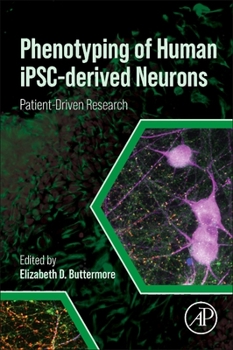Phenotyping of Human iPSC-derived Neurons: Patient-Driven Research
Phenotyping Human iPSC-derived Neurons: Patient-Driven Research examines the steps in a preclinical pipeline that utilizes iPSC-derived neuronal technology, also providing considerations and best practices. By using example projects in ALS and epilepsy as a template, the text allows readers to understand what considerations are important to assess at the start of project design. The book addresses reproducibility issues at each stage of the pipeline and provides suggestions for improvement. From patient sample collection and proper controls to neuronal differentiation, phenotyping and screening, these detailed descriptions of each stage of the pipeline will help everyone, regardless of stage in the pipeline.
In recent years, drug discovery in the neurosciences has struggled to identify novel therapeutics for patients with varying indications, including epilepsy, chronic pain and psychosis. Current treatment options for such patients are decades old and offer little relief with many side-effects. One explanation for this lull in novel therapeutics is a lack of novel target identification for neurological disorders (and target identification requires exemplar preclinical data). To improve on the preclinical work that often relies on rodent modeling, the field has begun utilizing patient-derived induced pluripotent stem cells (iPSCs) to differentiate neurons in vitro for preclinical characterization of neurological disease and target identification.
Related Subjects
Medical Medical Books Science Science & Math Science & Scientists Science & Technology




